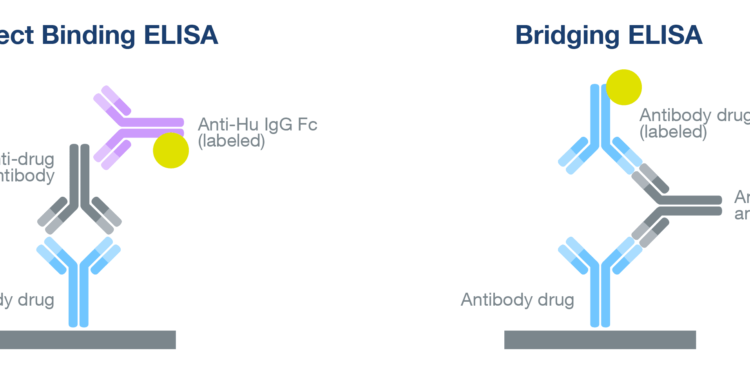ELISA assays are a common detection technique used to measure analytes in complex biological matrices. The entire ELISA assay depends on the interaction between proteins and antibodies. This immobilisation and binding strategy make ELISA an easy and robust immunoassay technique. Understanding its importance in biomedical sciences, several immunoassay services now assist in ELISA development and validation. The current article highlights seven benefits of why immunoassay service providers focus on ELISA assays.
Food industry
ELISA is a primary detection method in the food industry. ELISA assays are vital for identifying food allergens in consumable goods such as peanuts, milk, almonds, walnuts, and eggs. Besides, ELISA can validate food authenticity. This test is particularly crucial for evaluating economic losses due to fraudulent substances.
Vaccine development
ELISA is a crucial component of vaccine development studies. Researchers often test sera samples from an immunized test model to detect antibodies against specific antigens. ELISA is often the primary choice of assay method to detect antibodies in vaccine research.
Immunology
The immune system operates in different modes, such as cellular and humoral immunity. Comprehending and measuring the underlying changes in cellular and humoral immunity forms the basis of understanding immune responses and associated aberrations. Over time, ELISA has become a gold standard for measuring and monitoring immune responses.
Platelet antibodies
Detecting serum platelet antibodies is the primary diagnosis for diseases such as systemic lupus erythematosus and idiopathic thrombocytopenic purpura. These diagnostic tests employ the enzyme alkaline phosphatase. Besides being a less complex and cheaper detection model for platelet antibodies, ELISA assays have also proved more beneficial than platelet immunofluorescence and lymphocytotoxicity tests for detecting platelet antibodies.
Diagnosis
ELISA has emerged as a promising platform for diagnosing several human and animal diseases. Numerous commercial ELISA assay kits are available for Influenza, HIV, Dengue fever, Chagas disease, Ebola, West Nile virus, Lyme disease, and many more. ELISA was the first testing kit for HIV that detected the human serum cystatin C to confirm positive cases. On the other hand, the IgM antibody-capture ELISA is widely used to detect the West Nile virus in serum or cerebrospinal fluid samples. Moreover, this ELISA can also confirm whether the infection has reached the central nervous system.
ELISA assays are also employed in plant pathology. The primary reason for its rise is that they have successfully overcome the previous limitations of serological analyses.
Pregnancy test
Several biomolecular structures such as LH, FSH, E3, TSH, and hCG hormones are expressed during pregnancy. ELISA can accurately detect some of these entities in saliva, urine, or blood samples in the early stages of pregnancy. For example, hCG is a common hormone that ELISA can detect during the first month of pregnancy. Moreover, E3, estriol, can be efficiently detected at the 6th week of pregnancy through ELISA assays.
Cancer research
Irrespective of development in drug discovery development and drug development life cycle, early cancer detection is the hallmark of higher patient survival. ELISA is a robust screening method for evaluating biological markers of cancer.. Advancements in ELISA method development will likely be the key to its sustained application in cancer research. However, there can be some challenges in assessing these cancer biomarkers.
